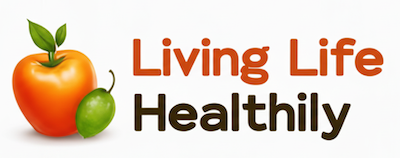
Embrace relaxation through gratitude by prioritizing daily gratitude and keeping a journal. Just five minutes a day can boost your well-being and lower stress. Engage in mindful breathing or gratitude meditation for quick access to calmness. Take gratitude walks to connect with nature, burn calories, and reduce anxiety. Share your gratitude with others to deepen relationships and enhance personal happiness. Embrace the present moment to transform mundane routines into joyful experiences. Finally, improve your sleep by incorporating gratitude into nightly routines to reduce stress and enhance rest. Discover how these practices can enrich your life further.
Prioritize Daily Gratitude
To prioritize daily gratitude, you can start by dedicating just a few minutes each day to this uplifting practice. Allow yourself to embrace a grateful mindset, as it offers profound gratitude benefits that extend far beyond mere moments of appreciation. You’re likely to experience enhancements in mental wellness, transforming your outlook into a beacon of optimism. Research shows gratitude leads to increased optimism and improved life satisfaction. Integrate a simple, five-minute gratitude journal into your routine. This practice has the power to boost long-term well-being by 10%, helping you break free from the chains of negativity.
By adopting a grateful mindset, you release a reservoir of positive physical changes. Your heart health may improve, with the potential of reducing diastolic blood pressure and encouraging healthier eating behaviors. Just 15 minutes of gratitude, five times a week, can cultivate a lasting perspective shift. Incorporating rest days into your weekly routine can further enhance this shift, allowing your body and mind to regenerate and recover.
This habit also invites restful sleep, known to enhance your restorative night by up to 25%.
In cultivating gratitude, you’re not just surviving—you’re thriving. This mindset nurtures emotional well-being and fosters better social connections. Setting aside a bit of time each day empowers you to lead a liberated life, flourishing in the beauty of gratitude.
Engage Mindful Breathing
Although it might seem simple, engaging in mindful breathing can greatly transform your emotional and mental well-being. This practice activates your parasympathetic nervous system, reducing anxiety and stress. When you’re seeking freedom from life’s chaos, mindful breathing allows you to slow down and reconnect with yourself. Imagine your breaths as a bridge to tranquility—each one helping you focus, sleep better, and build resilience. Most breathing exercises can be initiated immediately, offering quick access to relaxation and mental health benefits. Scientific studies show that mindful breathing techniques can improve sleep quality, enhancing rest and rejuvenation for overall health.
| Technique | Purpose | Benefit |
|---|---|---|
| Belly Breathing | Deep relaxation | Lowers heart rate |
| Box Breathing | Balance | Enhances concentration |
| Alternate Nostril | Emotional stability | Boosts self-awareness |
Start by finding a comfortable position, maybe seated with a straight back and relaxed shoulders. As you breathe, notice your patterns without judgment. Use counting to keep a steady rhythm, and don’t worry if your mind wanders—gently return to your breath. Try techniques like 4-7-8 breathing for stress reduction or alternate nostril breathing for greater balance.
Consistency is key. Incorporate mindful breathing into your daily life to maintain a sense of calm and liberation. With regular practice, you’ll find emotional stability strengthening, making life’s demands seem effortlessly lighter.
Keep a Gratitude Journal

Keeping a gratitude journal transforms your outlook on life and enhances overall well-being. By embracing daily gratitude reflections, you open the door to a liberated, more fulfilling existence.
One of the remarkable journaling benefits is the improvement in mental health. Just five minutes of daily entries can boost your long-term well-being by over 10% and notably reduce depressive symptoms by 30%. Imagine facing each day with newfound optimism and a peaceful mind—gratitude journaling makes this possible. In the workplace, gratitude can significantly impact employee satisfaction, as a lack of appreciation is the top reason for job turnover.
The physical perks are equally impressive. Engaging regularly in gratitude journaling can help lower your diastolic blood pressure and improve sleep quality, allowing you to experience more restful nights and heightened energy. An 8% increase in sleep, with softer, more relaxed nervous responses, aids in shedding the weight of stress and anxiety. Mindful practices like journaling can also enhance emotional awareness, contributing to a notable reduction in stress.
Beyond mental and physical health, gratitude journaling fosters enhanced well-being by cultivating happiness and satisfaction. It helps you focus on the present, reducing negative thinking and enriching your social relationships.
As you write, you’re not just chronicling your day; you’re investing in healthier behaviors and stronger social bonds. Your journey toward increased energy, happiness, and liberation begins with each entry in your gratitude journal.
Utilize Gratitude Walks
Just as a gratitude journal transforms your outlook, starting on gratitude walks offers another powerful way to foster well-being. These walks allow you to connect with nature, reducing stress and anxiety while enhancing emotional resilience. Engaging in gratitude walks can be liberating, as you embrace qualities that elevate happiness and self-esteem. Regular practice of gratitude has been linked to improved heart health and reduced anxiety, adding an extra layer of benefit to this mindful activity. Walking also improves cardiovascular fitness and can burn upwards of 200 calories per session, making it a healthy habit to incorporate into your routine. Here’s how to make the most of your walk:
- Schedule Daily Walks: Dedicate at least 15 minutes every day to immerse yourself in a gratitude walk. Consistency builds a strong nature connection and emotional resilience.
- Focus on Gratitude: Spend half of your walk reflecting on the aspects of your life you’re grateful for. Notice how the simple act of acknowledging these thoughts diminishes stress and boosts positivity.
- Observe Your Surroundings: Take note of the sights, sounds, and smells that evoke peace. This mindful presence anchors you in the moment and enhances your connection to the natural world.
- Reflect and Record: After your walk, jot down any thoughts or experiences in a gratitude journal. This reflection solidifies your observations and nurtures a greater sense of appreciation.
Practice Gratitude Meditation

Begin your journey towards a peaceful mind with gratitude meditation, a powerful practice that combines mindful awareness with the cultivation of gratitude. As you settle into this transformative ritual, start by taking deep breaths to anchor yourself in the present moment.
With each breath, let any tension and negativity dissipate while gently scanning your body and acknowledging your emotions. This introspective awareness sets the stage for emotional regulation, allowing you to break free from the burdens of stress and anxiety.
Now, bring to mind those people, places, or experiences that spark joy and gratitude. Whether it’s the laughter of a friend, the warmth of a pet, or the beauty of a sunrise, let these thoughts envelop you. Engaging in daily activities mindfully can significantly amplify the effects of gratitude meditation by reducing stress levels and anchoring you deeper in the present moment.
As you mindfully engage with each grateful reflection, notice the subtle shifts within your body, emotions, and thoughts. You’re cultivating not just gratitude, but a deeper connection to the moment that enhances your well-being.
End your practice with a moment of reflection, observing the tranquility you’ve created. Over time, gratitude meditation can elevate your mood, improve your sleep, and increase self-esteem.
As you complete your gratitude meditation, take a moment to contemplate extending this practice beyond yourself by sharing gratitude with others.
Sharing gratitude can transform not only your own life but also the lives of those around you. Consider engaging in gratitude letters or taking on various gratitude challenges to enhance your personal relationships, boost workplace morale, and improve your overall well-being.
- Workplace Harmony: By showing gratitude at work, you increase employee satisfaction and boost productivity. A simple thank you can enhance leadership presence and improve job retention rates.
- Stronger Relationships: Gratitude letters to partners or friends can lead to improved relationship quality. Expressing appreciation in personal connections fosters trust and strengthens bonds.
- Daily Acts of Kindness: Make gratitude part of your routine. Whether through a journal or spontaneous acts of kindness, embedding gratitude in little things can improve mental health and resilience.
- Social Benefits: Sharing gratitude enhances social interactions. You’ll find people are more likely to view you as likable and trustworthy, paving the way for a supportive community around you.
Harness the power of gratitude to cultivate a life rich in connection and fulfillment.
Embrace Present Moments

Amidst the hustle and bustle of daily life, embracing present moments with awareness can transform your daily routine into a more fulfilling experience.
By cultivating mindful awareness, you can break free from the chains of routine and discover the beauty in the everyday. Focus on specific gratitudes—like the taste of your morning coffee or the warmth of the sun on your skin. Let your senses guide you to a greater appreciation of your surroundings: the melody of laughter, the vibrant colors around you, or the gentle breeze against your cheek.
Practice grounding techniques, such as the 5-4-3-2-1 method, to anchor yourself in the present. Acknowledge five things you see, four things you hear, three things you can touch, two things you can smell, and one thing you can taste. By doing this, you harness sensory appreciation to deeply connect with the moment.
Integrating gratitude with existing habits elevates ordinary moments to extraordinary ones. As you brush your teeth or prep your morning brew, linger in these experiences with intention and notice the small joys.
This practice not only enhances mental tranquility but also liberates you to live with more joy and presence every day.
Gratitude Boosts Sleep Quality
The positive impact of gratitude on sleep quality is substantial and multifaceted. By cultivating gratitude, individuals can enjoy improved sleep quality characterized by quicker sleep onset, longer sleep duration, and a more restful experience.
Gratitude diminishes negative pre-sleep thoughts and emotions, resulting in enhanced mental well-being and reduced daytime dysfunction. The mechanism behind this transformation involves the promotion of positive pre-sleep cognitions, stress reduction, and an increase in dopamine, all of which collectively foster relaxation and improved sleep. Engaging in gratitude interventions, such as maintaining a gratitude journal or practicing gratitude meditation, provides tangible benefits, especially for those grappling with sleep disorders.
To fully embrace these benefits, integrating gratitude into one’s nightly routine as a structured practice can be remarkably effective. As gratitude becomes a habitual part of life, it supports long-term sleep improvements and overall well-being.
By channeling gratitude through various exercises, individuals find themselves better rested, with enhanced emotional and physical health, ultimately fostering a positive mindset. The power of gratitude extends beyond mere theory; it offers practical, actionable ways to enhance daily life by diminishing stress, nurturing emotional harmony, and paving the way for consistently better sleep.
Acknowledging the interplay of thoughts and gratitude paves the path to being more grateful, and consequently, more rested.













